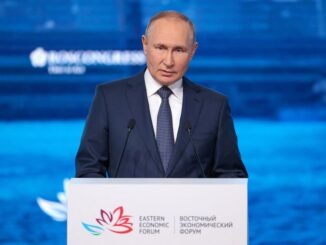
German emissions from electricity generation increased in the first half of 2021 by one-quarter, or 21 million tons, according to German think tank Agora Energiewende. Gas-fired power plants increased 15%, coal power plants by 36%, and hard coal power plants by 44%.
Experts say it’s because Germany’s economy is growing more in its post-Covid recovery. “Overall, the recovery in demand is by far the main factor behind the increase in fossil fuel generation,” said a German energy analyst.
But the increase was also due to the lack of wind. Wind produced just 46.8 terawatt hours in the first six months of 2021 which is over one-quarter less than the 59.4 TWh they produced in the first half of 2020. Offshore wind generation, too, dropped by 16%, to 11.7 TWh during the period.
It’s true that there was a slight increase in solar power generation, wind was abnormally high in 2020, and things could improve next year. In contrast to 2020, there were no above-average wind and sun conditions in 2021.
But increased electricity from solar was from more solar panels, not more sunlight, and Germany couldn’t install enough of them to make up for the loss of electricity from wind turbines. Sunlight was down in the first half of 2021 even as solar panel installation was up. And the German parliament’s researchers recently concluded that Chinese solar panels were being made under conditions of genocide, which make sanctions, and fewer imports of China-made solar panels, inevitable.
Meanwhile, Germany is closing nuclear plants this year and next, which will result in more use of coal and natural gas, and thus increase carbon emissions. Of the 56% of German electricity that came from carbon-free sources in 2020, 24% overall came from nuclear, hydroelectric dams, and biomass, which are far more reliable than solar and wind.
Analysts say the closure of nuclear plants is directly responsible for higher electricity prices. Germany has the most expensive electricity in Europe and wind-heavy Denmark has the second most expensive. In the first half of 2020, German electricity prices were 43 percent higher than the European average.
As a result, Germany’s renewables experiment is effectively over. By 2025 it will have spent $580 billion to make its electricity nearly twice as expensive and ten times more carbon-intensive than France’s.
Germany’s rising emissions and electricity costs illustrate in dramatic fashion that modern nations cannot rely on weather-dependent energy sources to power their high energy economies. For environmental advocates of low-energy living, the pre-modern character of renewables has long been a feature, not a bug. But the rejection of modern energy by Germany in particular may also stem from its specific ambivalence over whether or not it wants to be a nation.






